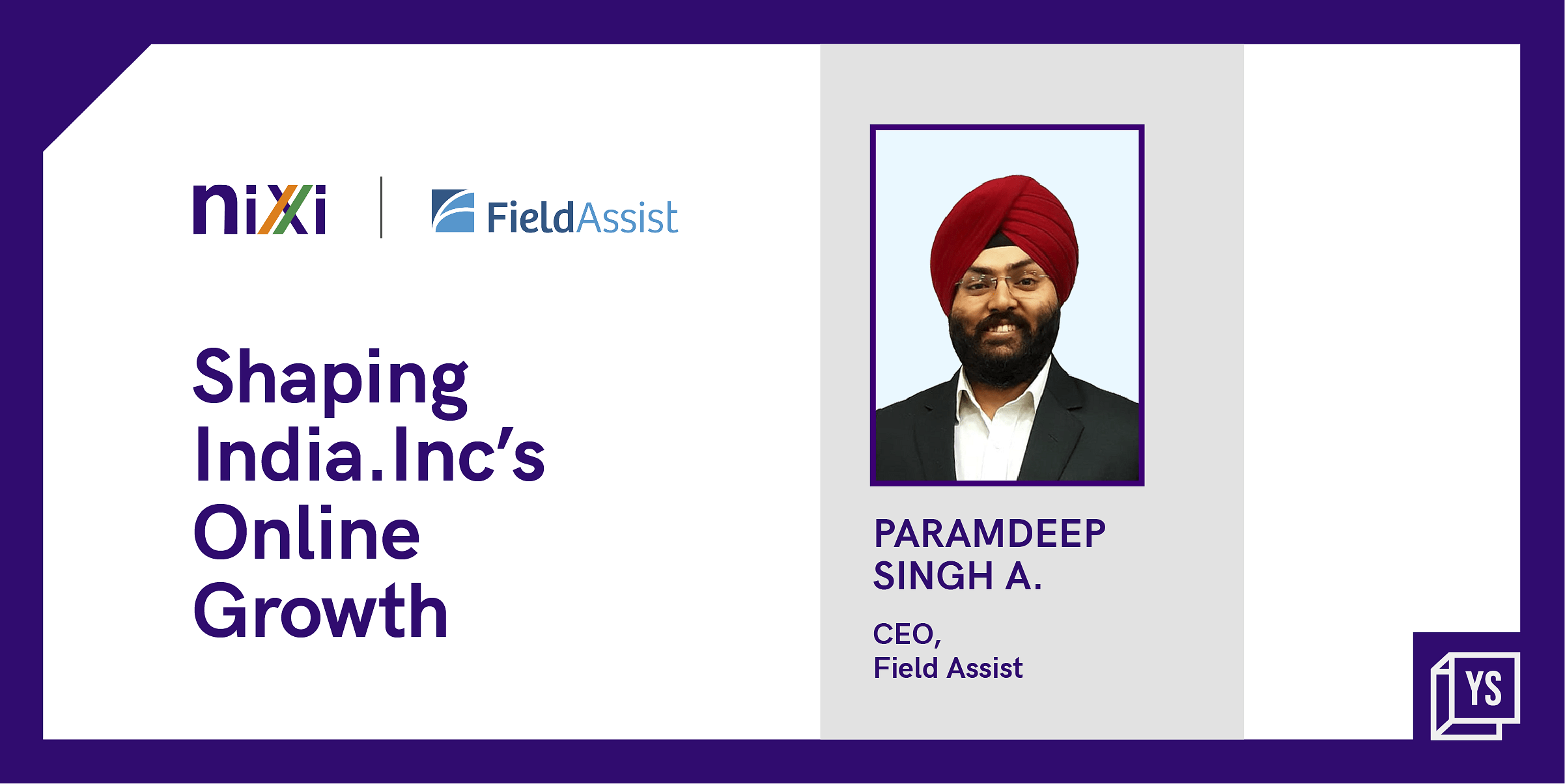Starting off its journey as a SaaS-based salesforce automation platform, the last 18 months have seen FieldAssist metamorphosing into an integrated automation platform that’s unlocking the growth for many Consumer brands with real-time intelligence. “Today, we provide a 360-degree end-to-end solution for all the go-to-market execution for consumer packaged goods (CPGs) brands. We want every brand in the emerging markets to collaborate, innovate and disrupt to lead;” says co-founder and CEO Paramdeep Singh. About 500+ leading brands across FMCG, apparel and CPG industries leverage FieldAssist for their salesforce automation and Distribution management needs. This includes enterprise brands like Everest, Bisleri, Haldirams, Danone, Lotte, Jockey, Nobel Hygiene; startups like Mama Earth, Licious, Kapiva among others.
A wide portfolio
FieldAssist enables the growth for Consumer brands by empowering relationships across the CPG partner ecosystem with real-time intelligence, It helps automate their sales processes, accelerate on-field productivity by planning sales itineraries and track sales staff visits to point of sales in real time, capture secondary sales data in real-time, gain deeper insights and mine new sales opportunities with business intelligence. Today, FieldAssist’s suite of product offerings include a Distributor Management System (DMS) for the consumer goods industry, Analytics App for sales managers to know about their sales operations in real time, Field App for field sales personnel, among others. “With our portfolio of automation and intelligence products, we are able to cover the needs of middle management, sales management and the sales foot soldiers,” he says.
Interestingly, a lot of these products and additional features were developed and launched during the pandemic, reveals Paramdeep. This includes the DMS, Battleground, gamification of modules to encourage the sales personnel on ground to achieve their targets, a retail connect platform that connects retailers and shop owners to brands, contactless SFA that enables retailers to take orders and pass it on to the distributors with the WhatsApp order sending feature, among others.
Paramdeep says the products were developed out of necessity to provide strategic solutions for CPG brands which were caught off-guard by the pandemic. They needed automation solutions for better product visibility, effective beat plans, engaging sales teams virtually and to help businesses transition smoothly into the new normal. The new products and features had a visible impact in the market, reveals the CEO. “The big CPG brands that leveraged FieldAssist were able to maintain their market share, capitalise on the changing consumer demands, and launch new products. It was possible because there was a lot of data that was being generated and brands were able to capitalise on it because of the technology that was in place,” he says.
FieldAssist at its core helps to maximise ROI on automation. The salesforce automation software which was its core value proposition is now just a part of the offering. “Today, we help make sales smarter with decisions based on accurate data measured against the right KPIs,” shares Param. In addition, FieldAssist integrates seamlessly with multiple applications in an organisation’s sales stack like Enterprise Resource Planning (ERP), Distribution Management Software (DMS), and customer relationship management (CRM) software. “This ensures that there are no data silos and all the tech infrastructure stays in sync with the FieldAssist app, at all times,” he explains.
Winning the market
An interesting aspect of FieldAssist is they have not only been able to win the enterprise market, but have also made inroads with startups and regional players. “The problem statement doesn’t change drastically irrespective of the size of the business. While there are tweaks that may be required, the platform has been designed to address the core challenge. And, that makes us positioned to address the sales force automation and management challenges irrespective of the business model, size or volume,” says Paramdeep.
Today, there are 500+ enterprises, regional food brands, and startups that have benefited from FieldAssist. For instance, Haldiram’s. India’s leading manufacturer of savories, sweets, and beverages, saw an annual increase of 20 percent in month-wise sales across Maharashtra and scaled up to 3.5 lakh outlets including small canteens, sweet marts, paan shops, etc. In addition, with the FieldAssist Analytics App, mid-managers started getting a clear view of the exact penetration of SKUs of one of its highest selling product lines. A key highlight of the engagement was that within the first one month of execution, the app was adopted by 95 percent of the on-field staff consisting mostly of distributor salesmen who were not under Haldiram’s direct control. In the past, while running its operations and sales on a traditional sales model, it was extremely challenging for the management to implement the right expansion strategies because of lack of transparency in the sales flow and real-time data.
The bootstrapped startup has been witnessing a 100 percent YoY growth. In 2017, the startup turned profitable. Today, it has reached a revenue of $3million+ ARR. Even though last year it saw a dip in growth because most manufacturers took a cautious stand and paused investments, it expanded its workforce by 60 percent.
Driving confidence with .in
While the early years saw FieldAssist focusing on growing their market presence in India, in 2019 the startup began tapping into the African, Middle East and Southeast Asian markets, given that these countries had similar market challenges like India. “By then, we had already proved ourselves in the Indian market and that gave a lot of confidence for the international brands,” says Paramdeep.
And, here the website built on a .in domain has been a force multiplier in enabling growth – both in the domestic and international market. Paramdeep explains, “One of the myths that prevents technology adoption among small and regional brands is that it is only for the enterprises or the big players. Also, it is assumed that the technology is not user-friendly for people who may not be well-versed with technology. But, having a .in domain helps to break that mental block. Because, when they see a .in domain, they instantly connect that it is an India-based company and understand the needs of the domestic market. So, they are more open to conversations.” He adds that this confidence with businesses with .in domain extension holds true for international businesses, especially those from developing countries. “The .in domain extension builds confidence because it comes with a strong market understanding given that the challenges and opportunities in developing countries are similar on a lot of fronts. And, with a proven track in the domestic market, we are further able to cement that confidence,” he says.
With the market perception about Indian technology solution providers coupled with a strong SEO campaign, FieldAssist has been able to drive strong in-bound queries. “On average we receive queries anywhere between 100-250 queries a month. And, we are able to convert at least 80 percent of those queries into engagements,” Paramdeep says.
While FieldAssist already has its hands full with engagements in the Indian market that will be executed over the course of the next 12 months, the startup plans to accelerate its international expansion. In addition, it is also looking forward to signing technology partnerships so that FieldAssist will be positioned to provide a 360-degree automation solution for any brand.









